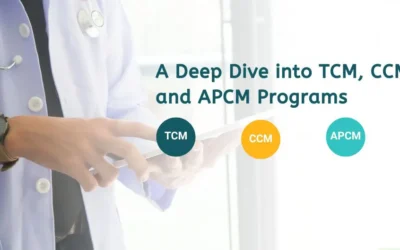
The Power of Patient Engagement in Driving Better Outcomes
Using patient engagement strategies requires intentional action, but the benefits are significant. People engaged in their care usually follow care plans, control their chronic health problems well, and stay in touch with their doctors. When you start focusing on engagement in your care model, these are the things you can expect.
Better Health Outcomes
Patients involved in their care are more likely to be happy and healthy. They tend to use their medications, go to their appointments, and act on ways to keep their health, such as exercising regularly, getting immunized, and having routine check-ups. Patients who are active in their treatment are not as likely to be readmitted to the hospital after they go home. Being more involved in care helps patients feel less anxious.
Enhanced Commitment to Treatment Plans
Even though genes have an impact, most of what causes chronic disease is within our control. Still, staying healthy in the long term depends on a patient being willing and motivated. When patients are involved in their care, they are more likely to do what their doctor advises, which can bring about better outcomes and save them from more serious interventions.
Patient Confidence Boosts
Patients feel more in charge of their health when they are involved in their treatment. Managing their health and going through treatment with confidence is very important. Independent patients end up being more pleased with their medical care and lead a better quality of life than those who need extra help.
Low Healthcare Costs
Having patients involved is very important in preventive care. When patients take part in their care, they may be able to prevent acute interventions, which are expensive for both parties. Engaging patients makes healthcare teams more efficient and increases their profits. People with the least involvement in their care have the highest expenses in healthcare expenses.
Key Challenges That Hinder Effective Patient Engagement
In addition to talking to patients, ensuring their engagement also means dealing with any barriers they may have related to their actions, feelings, and the system. Some of the usual challenges are:
Low health literacy: A patient may not grasp all the details about their illness, what treatments are available, or how to look after their health until the next appointment. Not knowing the details can result in confusion, inactivity, or wrong choices.
Access challenges: Transportation issues, problems with money, not having childcare, and not being able to use digital devices can stop patients from getting medical care as they should.
Mental health and motivation: Many patients with long-term health problems experience depression, anxiety, and chronic stress, which often cause them to become disengaged. When patients are very stressed, even simple healthcare tasks can be hard to handle.
Language and cultural barriers: If patients feel their language, traditions, or ways of talking are not understood, they might become less involved and trust the system less.
Fragmented care delivery: If patients see several providers who do not talk to each other, they may feel lost and end up with conflicting advice.
Patient Engagement Strategies that Work
Working together with patients allows providers to see the advantages of patient engagement in healthcare. Both Chronic Care Management (CCM) and Advanced Primary Care Management (APCM) programs help patients by giving them support and guidance in between doctor visits.
These programs work by applying practical, patient-centered strategies that drive results:
- 24/7 access to care: Let patients always know that they can reach medical guidance whenever it is needed. With care manager advice lines and care coordination services, patients can choose if they need to treat their symptoms at home or visit the emergency room, which helps them avoid unnecessary trips and manage their health better.
- Personalized care plans: Customize care plans to support what the patient wants and needs. When patients have chronic conditions, health care should focus on making care plans that take into account their lifestyle and overall health. Setting specific and measurable targets in care plans helps patients know what success looks like.
- Social Determinants of Health (SDOH) support: Empower patients to overcome any challenges that block them from reaching their health goals. For example, you might help them get access to good food, get to their appointments or find a safe place to live. SDOH support might also mean helping patients arrange medication refills at a nearby pharmacy. In any case, being engaged with a patient involves more than just giving healthcare services.
- Community engagement: Link patients to various sources of help. Getting them to join exercise groups might make them more likely to follow their care plans. Alternatively, suggesting patients use mental health resources can help them feel less stressed and do better.
- Patient education: Give patients helpful information and knowledge that goes along with their in-person care. Giving patients more information on their condition, healthy meals that meet their needs, or personal exercise plans is a main way to stay connected with them.
- Consistent outreach: Regularly stay in touch with your patients. Though patients have to decide on their own, it’s your job to let them know they can turn to you if they want. Make sure they have several options for getting in touch with you.
- Digital communication: Use technology in healthcare to reach out to your patients. Two-way messaging, regular phone calls, and online surveys help patients stay in touch and aware of important health matters between their visits.
Gen By Gen Health's turn-key CCM/RPM solutions ensure compliance and health literacy – improving patient satisfaction and outcomes, increasing revenue, and decreasing staff workload.
To get in touch call us right now at (908)-864-0098 to learn more about our CCM services or you can also book a 30 min free consultation.
You may also like
Advance Primary Care Management (APCM) and Who Can Bill For It
Advanced Primary Care Management (APCM), which started in 2025, is the latest care management program from CMS. Unlike older care management plans, it supports every Medicare beneficiary, irrespective of how many chronic conditions they have. As APCM is just starting,...
A Deep Dive into TCM, CCM, and APCM Programs
Transitional Care Management (TCM) is a service that allows Medicare to pay for help given to a person transitioning from a hospital to their home. TCM strives to prevent patients from being readmitted in the first 30 days after they leave the hospital. At this point,...
Ways to Increase Patient Retention with CCM
Patient retention occurs when patients go to the same provider several times for care during their healthcare journey. Patient retention is what makes a healthcare practice convert a new patient into a loyal patient. Patient retention is one of the top measures of...



